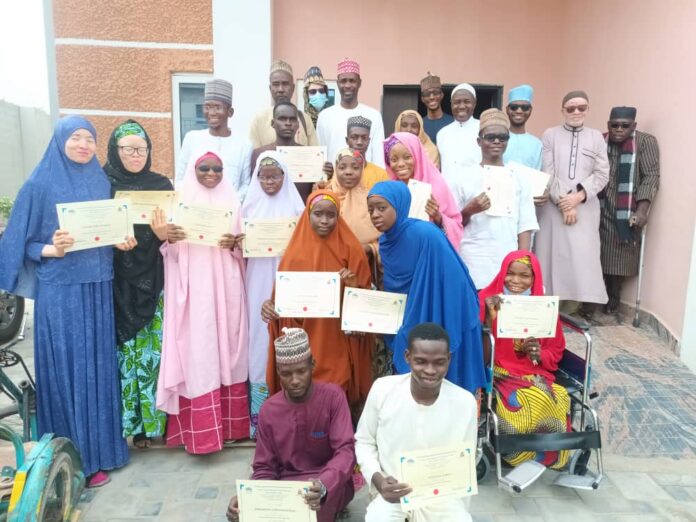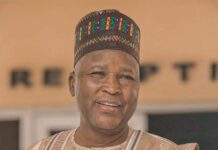Breaking Barriers: CITAD And People With Disabilities
By Ali Sabo, ANIPR
The Centre for Information Technology and Development (CITAD) as an ICT-based organization dedicated to improving the lives of underserved communities across Nigeria, has for long been championing social inclusion, working to address systemic barriers faced by marginalized groups, especially people with disabilities (PWDs). Achieving social inclusion is is not a one person or organization job and it requires collective action from government, civil society, media and communities. Nonetheless, CITAD has remained committed to its efforts in tackling the significant obstacles PWDs encounter, including limited access to education, healthcare, social services, social amenities, employment, and social interaction. In Nigerian, PWDs are often regarded as second-class citizens, however, CITAD works tirelessly to change this narrative.
According to a report by the Cable Newspaper in 2023, around 36 million Nigerians—nearly 20% of the country’s population live with one form of disability. This large demography faces persistent stigma and discrimination. Nonetheless, at CITAD we view this community as resilient, capable, and hardworking individuals who need only support and opportunities to thrive. Engaging and empowering them can reduce inequality, foster job creation, and address street begging, a growing concern in Northern Nigeria. As technology continues to evolve and reshape traditional jobs, it is important for all the stakeholders to ensure PWDs are taken along to ensure no one is left behind.
Read Also:
Recognizing the transformative potential of technology, CITAD has developed strategies to integrate PWDs into the digital space and the vast opportunities it offers. For years, CITAD has built their advocacy capacity, empowering them with the necessary skills and knowledge to engage with their representatives and government officials at both state and national levels. These advocacy efforts have yielded concrete outcomes. Between 2023 and 2024, over 60 PWDs secured employment with the Kano State government, this is a direct result of amplifying their voices and pressing for their rights. To ensure that they fit well into the civil services, CITAD with support from MacArthur Foundation conducted a week-long training in March this year on Civil Service Processes, Procedures and Work Ethics for the PWDs employed by the Kano State Government.
Understanding social media’s power in holding leaders accountable, CITAD conducted several trainings on using digital tools for accountability and trainings on disability-friendly technologies. Again, with support from the MacArthur Foundation, CITAD recently established Nigeria’s first dedicated PWDs Technology Training Hub, equipped with cutting-edge assistive technologies for individuals with hearing and vision impairments, and physical disabilities, as well as albinism. On October 25, the Hub graduated its first set of students, 70% of whom were women, representing various disabilities.
Advancing inclusion has been central to CITAD’s mission for over two decades, driven by the belief that there is “ability in every disability.” CITAD also amplifies the voices of PWDs in Nigeria by leveraging both traditional and digital media. For several years in Kano State, CITAD has been sponsoring radio programs addressing the issues and challenges faced by PWDs. Currently, Voice of PWDs airs on Arewa Radio, while Technology and PWDs broadcasts on CITAD’s Online Radio. CITAD also last year, conducted a three-day creative writing workshop for PWDs as part of the efforts to activate their voices and allow them with flexibility in sending out their messages.
To further create more opportunities for them, CITAD has conducted several training programmes through its JOPIS Unit on job interview preparation, accessing job opportunities. Currently, it is working to mainstream entrepreneurship, specifically focusing on the digital sector in the training programmes of the PWDs Technology Training Hub so that it begins to incubate PWDs entrepreneurs.
These programs have successfully highlighted PWDs’ concerns and urged government action. As a result, the Kano State government has responded to several demands, including the renovation of Tudun Maliki School for the Special Needs, provision of Braille and other learning materials for students with visual impairments, and the approval for the setting up of 44 Disability JAMB-CBT Centres across the state.
By joining forces, we can work towards a society free of barriers for people with disabilities. As the saying goes, “there is ability in disability.”
Ali Sabo, ANIPR is the Campaigns and Communication Officer
Centre for Information Technology and Development (CITAD)














